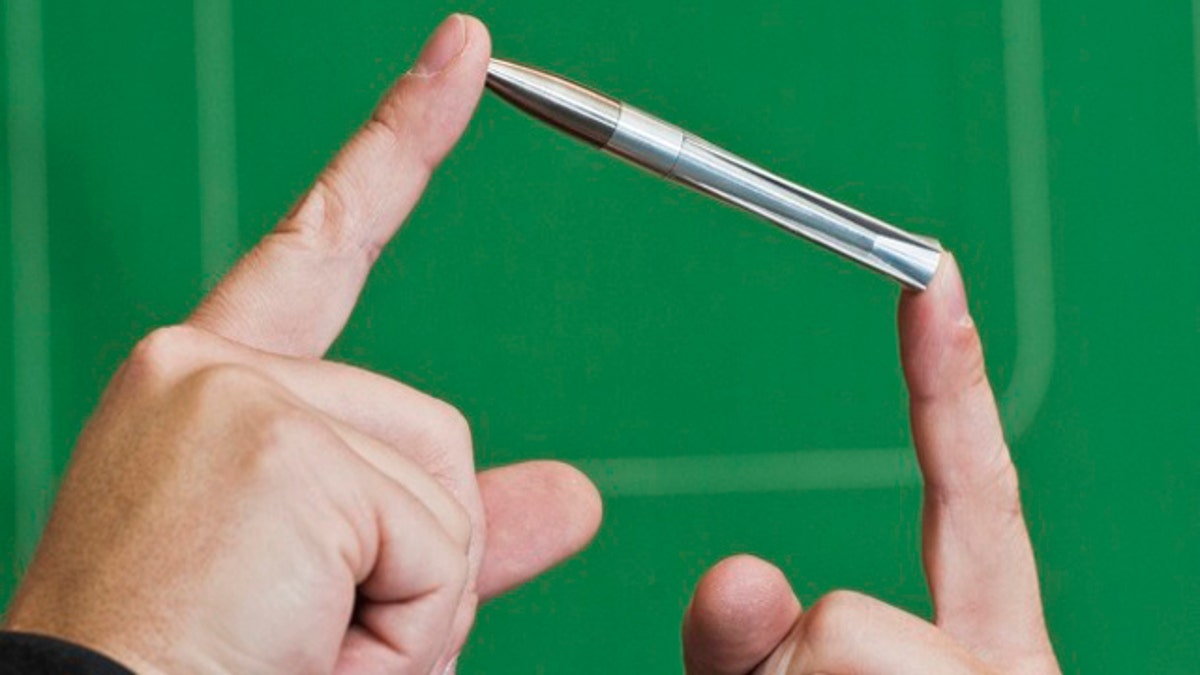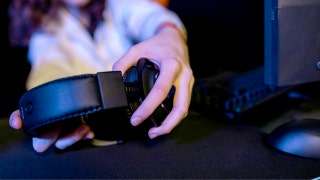
A new bullet from Sandia Labs is self-guided -- and it can hit targets more than a mile away, the inventors say. (Randy Montoya, Sandia National Laboratories)
Fans of science fiction movies of the 80s might remember “Runaway,” in which Gene Simmons plays an evil scientist who invents “smart” bullets that seek out specific human targets.
Sandia National Laboratories has brought that a bit closer to the real world. Researchers Red Jones, Brian Kast and their colleagues invented a self-guided bullet that can hit targets more than a mile away.
NEWS: Body Armor Made From Spider Silk
To hit targets so far away the bullet uses an optical sensor, an “eye” that detects the little red dot of a laser beam pointed at a target. Tiny electromagnets steer a set of fins on the bullet to keep it on track. Unlike ordinary bullets, this one has a its center of gravity pitched forward, more like a dart than a bullet.
Another difference is the gun you fire it with. Most modern rifles have a groove that spirals down the inside of the barrel, called "rifling." The groove is there to make a fin-less, smooth bullet spin, which allows it to fly straighter. The self-guided bullet needs to fly out without the spin, though, so a rifle that fires it has to have a simple smooth bore in the barrel, rather like an old-fashioned musket.
NEWS: Are These Satellite Images Exposing America's Secrets?
Each bullet has a guidance system that works somewhat like a guided missile, although it's less complex. Any projectile has a natural wobble when it's fired. With a missile, the wobble is slow, so any corrections have to be precise, because there are few opportunities to adjust the slow wobble in-flight. But because the bullet is so small, it wobbles faster -- about 30 times per second. That means there are more opportunities to make corrections and those adjustments can be less precise.
There is still work to be done for this to see action. As it is, the bullet is relatively slow, moving at about 2,400 feet per second when fired with commercially available gunpowder. A typical military rifle hits 3,000 feet per second, so some other gunpowder mixture will be needed. Sandia plans to seek a private company to build more prototypes and do more tests.








































